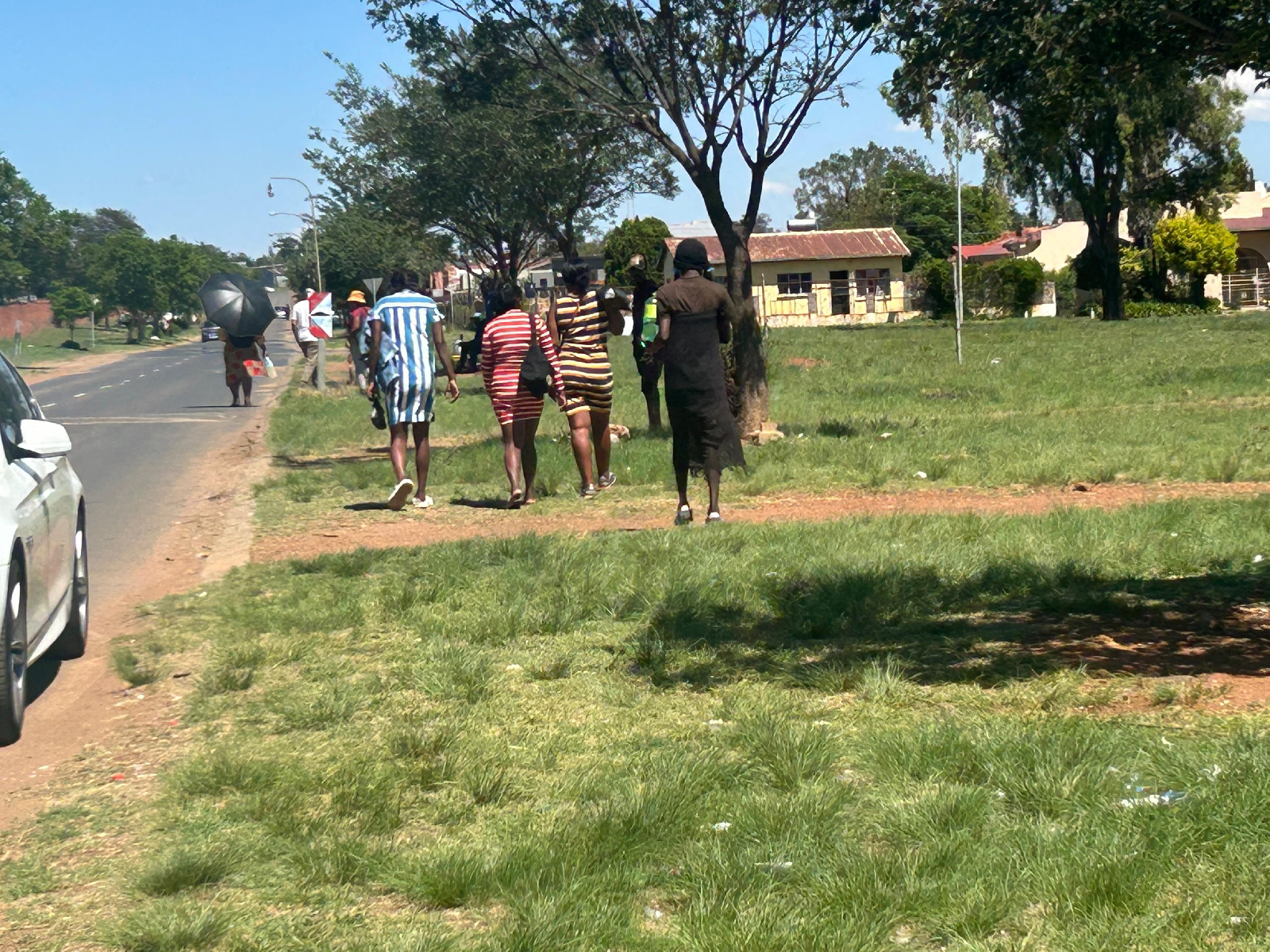“Read, every day, something no one else is reading. Think, every day, something no one else is thinking. Do, every day, something no one else would be silly enough to do. It is bad for the mind to be always part of unanimity.” – Christopher Morley
Tuesday, November 26, 2024
Bullying and fighting is a serious issue faced by teachers and parents
City Parks and Zoo requesting families to visit their families graves
Issues facing sex workers
Johannesburg MMC for Environment and Infrastructure Services, Jack Sekeiwale office, Meets with Phumla Mqashi Leaders Over Illegal Water Connections
The Home Coming Show: A Night of Unforgettable Performances
The Home Coming Show, held on Saturday, 23 November 2024, at Patidar Hall, was a remarkable event that captured the hearts of Lenasia’s residents. With tickets sold out, the atmosphere was charged with excitement as fans eagerly awaited stellar performances from their favorite stars, including Bushan Dass, Ridwaan Dawood, and Sujay Ramnandh. A standout moment of the night was a mesmerizing performance by the renowned Sitaare Dance Academy, which left the audience in awe.
The evening was warmly hosted by Lenasia’s own Farah Mohamed, who skillfully set the tone for a night full of entertainment. The crowd was also treated to fresh talent, as new voices Atul Sana and Zaine Mohammed Khan took the stage, delivering performances that had the audience captivated and eager for more.
One of the most unforgettable moments came from the legendary Lenasia singer, Soppy Dawood. Known for his remarkable ability to mimic the iconic Mohammed Rafi, Soppy’s powerful and emotive voice took the crowd on a musical journey, earning him a standing ovation.
A touching moment was provided by motor journalist Dash Pillay Bechan, who made a special appearance and performed a heartfelt dance in honor of her father, who is critically ill in hospital.
The music selection for the night was a perfect blend of nostalgic tunes from the 80s and 90s, alongside modern hits, ensuring the crowd was both entertained and energized. The infectious rhythms kept the audience on their feet, dancing and celebrating well into the night. It was a truly unforgettable evening of music, dance, and community spirit.
Growing Concern Over Public Sex Work in Lenasia Extension 6
Panda Lulu Creations: A 14-Day Walk for Education
Panda Lulu Creations, founded by Angie Diale, is organizing a monumental 14-day walk from Lenasia to Durban CBD, taking place from December 3 to December 16, 2024. This walk aims to raise funds for underprivileged children’s education in South Africa, addressing the country’s educational inequality, where many children lack access to basic resources that hinder their academic progress.
In a unique and ambitious challenge, Diale has been tasked with organizing this massive event within just one week—from November 25 to November 30, 2024. This tight timeline aims to generate excitement, rally community support, and engage sponsors and partners to take immediate action for the cause.
The campaign, driven by Diale’s passion for children’s education, calls on individuals, businesses, and corporate sponsors to participate by donating, sponsoring, or spreading the word. By joining the walk or offering financial backing, you can help ensure that every child in South Africa has the tools they need to succeed academically.
Get Involved:
- Walk with Angie Diale from Lenasia to Durban
- Donate or sponsor educational resources for children in need
- Spread the word to raise awareness
For more details, or to get involved, contact Panda Lulu Creations at:
- Phone: +27 69 868 6447 / +27 71 530 4346
- Email: pandalulucreations@gmail.com
Armed Clash in Carletonville as Police Intercept Illegal Miners in Dawn Raid
An intelligence‑driven operation led by the South African Police Service’s National Intervention Unit (NIU) and Gauteng Public O...

-
On the evening of 25 October 2025, the Alpha Primary School Hall in Lenasia was transformed into a vibrant celebration of histor...
-
Volleyball transcends being just a sport — it’s a journey of growth, resilience, and passion for many young athletes. For both 15-year-old V...
-
Johannesburg was bathed in a special kind of joy on Wednesday 7 January 2026 when Paramahamsa Sri Swami Vishwananda, affectionat...










